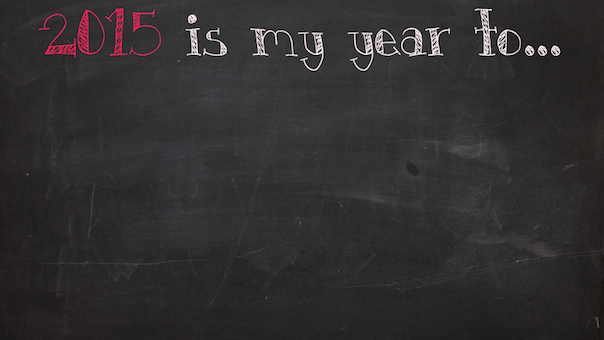I keep getting asked questions about monitoring and evaluation in campaigning. I’ve no idea why but here are a few of my reflections on the challenges (and opportunities).
1- It’s as much an art as it is a science – This paper is one of my favourite on the topic suggests that “Advocacy requires an approach and a way of thinking about success, failure, progress, and best practices that is very different from the way we approach traditional philanthropic projects such as delivering services or modeling social innovations. It is more subtle and uncertain, less linear, and because it is fundamentally about politics, depends on the outcomes of fights in which good ideas and sound evidence don’t always prevail”. Simply put trying to apply evaluation approaches from programme work are unlikely to work, as INTRAC suggests “The reality is that evaluating advocacy is hard. There is no magic bullet and systems”.
2 – What your measuring is often just the tip of the iceberg – Jim Coe has just authored this paper which suggests “the most significant benefits (of campaigning) are often submerged: difficult to measure, to monetise and sometimes even to see. It’s right to anchor advocacy to rigorous assessment. But calculations of value can risk focusing only on the part that is visible, generating misleading information and encouraging poor decision-making”, suggesting, amongst other things, that we should approach advocacy as inherently speculative, as “not all advocacy efforts will pay off, so plan for, and take a long term view of, “aggregate return” on advocacy rather than focusing on individual successes”.
3 – Focus on the transformational as well as the transactional – when you set objectives its easy to focus on the outcomes (transactional) like the number of actions taken, open rate on an email or attendance at event. As this paper suggests your metrics “should capture quantity and quality, numbers and nuance, transactions and transformations” recognising the importance of the impact of your advocacy on transformations “the vital but sometimes “invisible” work. They show how people, organisations, and movements have been altered through the collective efforts”.
4 – Don’t ignore it – In the busyness of a campaign focusing on monitoring and evaluation can feel like a luxury, but here are some useful tools for quick evaluation. Simply put, any serious campaign should focus on investing in both monitoring and evaluating, while recognising that most of the impact you won’t see until long after your grant/campaign has ended, so its always good to think about going back to review campaigns you’ve run a while back.
I’d also encourage all campaigners to get better at sharing their evaluations. It’s time we had an ‘open evaluation’ movement to unlock and share all the learning across our campaigns to help each other. Feel free to use the comment sections to post links to any in the comment section below.
Looking for more ideas? This report from UNICEF has lots of useful tools and approaches.
Tag: evaluation
Questions campaigners should ask regularly
Been challenging myself to ask more questions. Here are a few I think I should be asking more often.
1 – What does ‘success’ look like? A fundamental question to ask regularly. The answer should have both a specific and detailed response, as well as a reflection on what you want your campaign to achieve in the long term.
2 – What has the real influence here? Who can deliver the change we want? Its easy to focus on campaigning towards a target we feel comfortable with, or we’ve approached before. A through power analysis should be central to any campaigning we do, and from that an informed strategy. I’ve always thought that the right target is whomever can wake up tomorrow and deliver your campaign ask.
3 – What do you really need from us? A question any organisations with resources should ask to those within its movement, campaigns often succeed because of the variety of voices working on a issue. Sometimes that’s in formal coalitions, where resources are distributed in formal ways, but even in more informal coalitions, ensuring that others partners in your movement have what they need is essential. The answer isn’t always money, sometimes its political insight, sometimes its practical resources or access to technology.
4 – Do we really need to campaign here? This might sound like a counter intuitive question, but launching a campaign should be a tactic if other more ‘insider’ approaches aren’t going to work, rather than an initial response. Why? Campaigning comes at a cost, it’s resource intensive, and often the success we’re looking for can be delivered by a well placed ‘insider’ interventions.
5 – What would we do with twice the resource? All campaigns operate in a resource scarce environment, where their are trade offs to be made, asking this question is a great way of checking that you’re allocating the resources that you do have the most efficient and effective way. If you’d do more on one thing that you’re already doing, then perhaps you should look to redistribute the resources you already have.
6 – What are we learning? What would you do differently next time? Finding time to evaluate in the midst of a campaign isn’t always easy, but by asking what you’d do differently helps to ensure future campaigns win. Planning times for quick evaluation should be at the heart of any campaign.
What questions would you add?
Read, Reflect, Get a Mentor, Plan to Rest – 4 resolutions to make your a better campaigner in 2016
Originally posted in January 2015 but still relevant for 2016!
I’m terrible at keeping new year resolutions (if you want a campaigner who takes them very seriously check out Oxfam’s Al Kinley), but I’m a big fan of using the start of a new year to try to build new habits.
So as you get back into the office here are a few thoughts about steps that you could take to be a better campaigner in 20156.
1 – Read. A wise person once said to me that ‘leaders are readers’ its a maxim that’s stuck with me, and is part of the motivation for this blog.
In20156, make time to read about campaigns that are winning, trends that will impact your campaigning (Mobilisation Lab is a good place to start (and hopefully this blog)), what’s going on in politics (as a start sign up for daily emails from Labour List, Conservative Home, Lib Dem Voice plus Times RedBox) and be inspired by campaigners from the past.
But don’t just read things you agree with, take a moment to follow blogs and read newspapers that put alternative perspectives across. Don’t assume that everyone thinks the same as you and your colleagues, they don’t. Believe it or not, you could be a better campaigner by reading the Daily Mail.
2 – Reflect. When I started my new job in July, I penciled in my diary to take the forth Friday afternoon of each month to escape my desk and spend a few hours reflecting on what was working and wasn’t working. It hasn’t happened, although I’m going to try again in20156 with a less ambitious fortnightly lunch slot!
In campaigning, it can often feel like a luxury to take an hour or two to reflect and review on the last week, fortnight or month, but research shows that reflecting on performance actually improves your work. Why not start the year by booking in 30 minutes every 2 weeks to reflect on the following questions;
- What is your campaign doing well and what should you continue to do?
- What is your campaign doing ‘okay’ or badly and what can it improve?
- In what ways has your understanding about the situation deepened or changed?
- What have your learnt in the last fortnight? What areas are you being stretched in?
3 – Get a mentor. I’ve really valued those who’ve invested time in helping me be a better campaigner. I’ve found meeting with someone on a regular basis, about once every 4 to 6 weeks for an hour or so over coffee, has really helped me in my career. I find a mentor is someones brain I can mine for ideas, someone who can help me see the bigger picture or coach me through a particular challenge I’m facing.
It can feel intimidating trying to identify a mentor, it could be someone more senior in your organisation (probably in a different team), a campaigner you admire or someone working in a related area you’re keen to deepen your experience in. Start out by suggesting you trial it for 3 months and take it from their, you’ll be amazed that people like to say yes when you ask them
4 – Plan to Rest. You might feel rested after a Christmas break with a few long lie-ins and quiet days, but book your next break now, and make a strategy for how your going to switch off from your work over the next year. We need you to be involved in the work of delivering social change for at least the next 12 years, not just the next 12 month, and sadly too many of us burnout. I love these resources from the team at Plan to Thrive, I can’t commend this article from Rockwood Leadership enough on how to develop good habits to avoid burnout and I’m a big fan of encouraging everyone to take a retreat.


